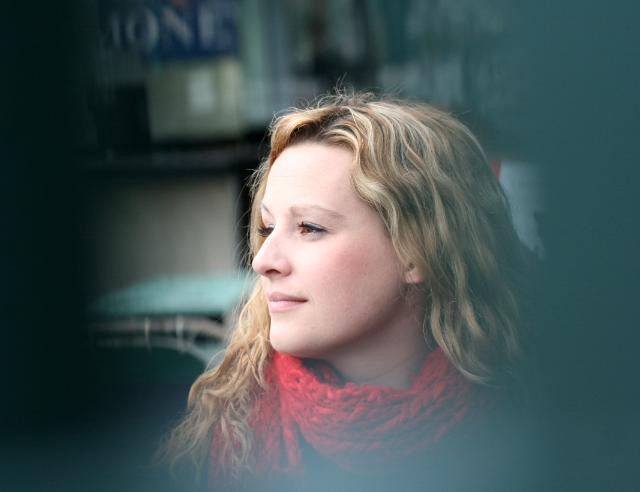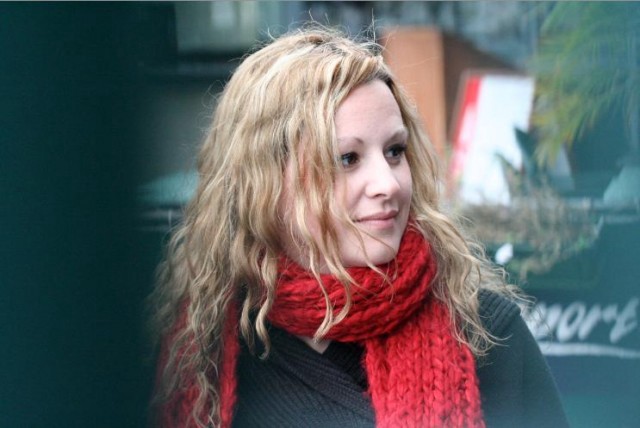Suzie Townsend, Literary Agent
by Andrew Piccone

Tell me about your job.
As a literary agent, authors query me and pitch me their projects and I then help them edit and revise and submit them to major publishing houses. When we sell the books I negotiate everything from the rights to the advance to the contract. After the work is sold I help them with publicity and guiding them with their career. If there are any kind of problems, which there always are, then I’m sort of the author advocate so the editor doesn’t have to be the crazy person calling and saying ‘I don’t want to do that!’ We get to keep the author nice and happy and I’m the person who calls and says “No, we’re not going to do that.”
Who’s the most high-profile author you’ve worked with?
I’ve only been doing this for about a year and a half, I was a high school English teacher before this, so most of my authors are debuting and aren’t coming out until 2011 or 2012, so its the beginning of the process. My first author who’s book just came out, her name is Lisa Desrochers and we’re really excited about that, that just came out in September. One of my clients who is actually only 19, Hannah Moskowitz, her first book just came out last August and we’ve since sold four more titles to her publisher.
Why did you make the jump from education to the literary world?
I loved teaching and I really loved the in-classroom aspects of it, but I got sort of disillusioned with the politics and the bureaucracy and the grade inflation going on in our school in San Diego. Then the budget crisis hit California and I saw it as a sign to take a year off. So I loaded up a 14 foot truck and towed my car behind me and drove from San Diego out here and got an internship at Fine Print Literary Management and I just loved it.
Do you miss San Diego?
I miss the weather. I’m from Philadelphia actually and when I first moved back here I commuted from Philadelphia into the city for like a year which was insane. I was just so shocked by how many people would make that commute every day, Philly to Trenton, Trenton to Penn Station. I just couldn’t do it. But so I definitely miss the sun, and I had forgotten how much it rains in other places, which was kind of a rude awakening for me. I really like the culture of the city, and there is always something going on here, I definitely like it here better.
Which state’s budgetary woes do you think are worse, California or New York?
Well I saw it first hand as a teacher in California because my job was so dependent on the state budget. Whereas with my job now, publishing is sort of going through its own economic downturn, but I haven’t really experienced that. Working primarily in the young adult market, things are kind of exploding and doing really well and I’ve had a lot of really good success with it, so I haven’t really felt the effects of the downturn.
Do you read only young adult books in connection with work? Do you have time to read for yourself?
I am a book addict in the best or worst kind of way. I read 116 books last year that were not connected with work. I’m neurotic so I counted. I’m probably on track to do the same amount this year. I read everything, I just finished Dennis Lehane’s Moonlight Mile this weekend which is the sequel to Gone Baby Gone, and that’s not a young adult book at all. I don’t read that much non-fiction unless it’s Malcolm Gladwell.
What’s your all time favorite book?
I’m not sure I can pick one. The Unbearable Lightness of Being by Milan Kundera is my favorite classic. The Time Traveler’s Wife by Audrey Niffenegger is one of my favorites. I love Ender’s Game by Orson Scott Card. I read it when I was a kid and I wanted to name my first child Ender. There’s a really great YA book called How I Live Now by Meg Rosoff which is one of my favorites. And my favorite thriller is probably The Breach by Patrick Lee, what an awesome book. I could probably keep going.
Do you write?
I had that moment when I was 18 when I was like ‘I want to be a writer!’ I don’t think I’m a bad writer, but I’m not as good at writing as I am at editing and noticing problems in other people’s work. At one point when I was in college or just out of college I had joined a writer’s group and but I never wanted to show my work, I just wanted to edit other people’s.
Where did you go to college?
University of Miami, so yeah I’ve kind of been all over the place. I double majored in Film and English. For a brief period of time I wanted to get into the film industry and then I worked on some films and commercials in Philadelphia one summer during college and I realized that I didn’t like it at all. Then I got my masters in teaching from National University which is in California.
Are you in a relationship?
No. I’m divorced. I was one of those people who when I was 20 my boyfriend at the time proposed and I was like ‘Yes!’ and people said I was too young and I was like ‘No way, I totally know what I’m doing.’ Four years later I realized actually, maybe that was a bad idea. He was in the military so he was being moved from Miami from San Diego and once we got out there it kind of occurred to us that this really wasn’t a good idea, and being 3000 miles from everyone we know made it kind of obvious. When I first got divorced I thought I would never get married again. I went through a brief time when I thought I should be a lesbian, which didn’t work. The next guy I dated proposed and we were engaged for three years and I kept pushing the date back because I wasn’t ready. And then right before I left California and we both realized that this wasn’t going to work out. He was a really nice guy, like the opposite of my husband, but it just was not quite right. I try really hard not to be bitter and I’ve dated other people and I know I have no problem with commitment. I think part of the reason why I got married so young is that there is some aspect of our culture that gives girls the idea that you really need a relationship, a man to make you happy. I’m finally at a place where I know that I don’t need that. I’m happy by myself. I’d love to meet someone who can challenge me intellectually and all that stuff, that would be great, but it’s just not a priority.
What advice would you give to someone under 25 who is the position you were in?
It’s hard because no matter what you say to someone the more they’re going to think you’re wrong. There’s no rush, I didn’t understand that at that age, everything felt so great and exciting, thinking that someone wanted to marry me, it’s every little girl’s dream. It’s really easy to get swept up in that. I think if someone proposes when you’re 21 or 24 or whatever you should wait until you’re 27 or 28, you don’t have to jump so fast into something that’s supposed to be forever. I think people change a lot in their 20s: people change jobs, identities, you go through a lot. Sometimes to no fault of anyone. People just kind of change, and they don’t always change together. Waiting and getting towards the end of your 20s, when you know you’re ready is so important.
How do you think technology has affected our generation?
Speaking from a literary and teaching standpoint, I worry about communication like texting and emailing, and it’s amazing to me how many people will write or speak in ways that just make no grammatical sense. You get used to doing things on your phone, using shorthand, but I can’t believe that people actually talk that way. ‘Totes.’ ‘OMG.’ I didn’t realize that people actually talked that way until I moved to New York and I couldn’t believe it! If you go back to the 1800’s when people had to write letters to communicate, there was such an art in that, in expressing yourself, a knowledge of rhetoric that people had to have and I feel like that’s been lost with the immediacy of sending a text message or making a phone call. When I was teaching I saw that so many teenagers don’t know how to interact face to face because they do so much of their interaction behind the safety of a screen.

Andrew Piccone is a photographer in New York.
